Queen Elizabeth II’s birthday 2016: What can we learn about long life?
- Published
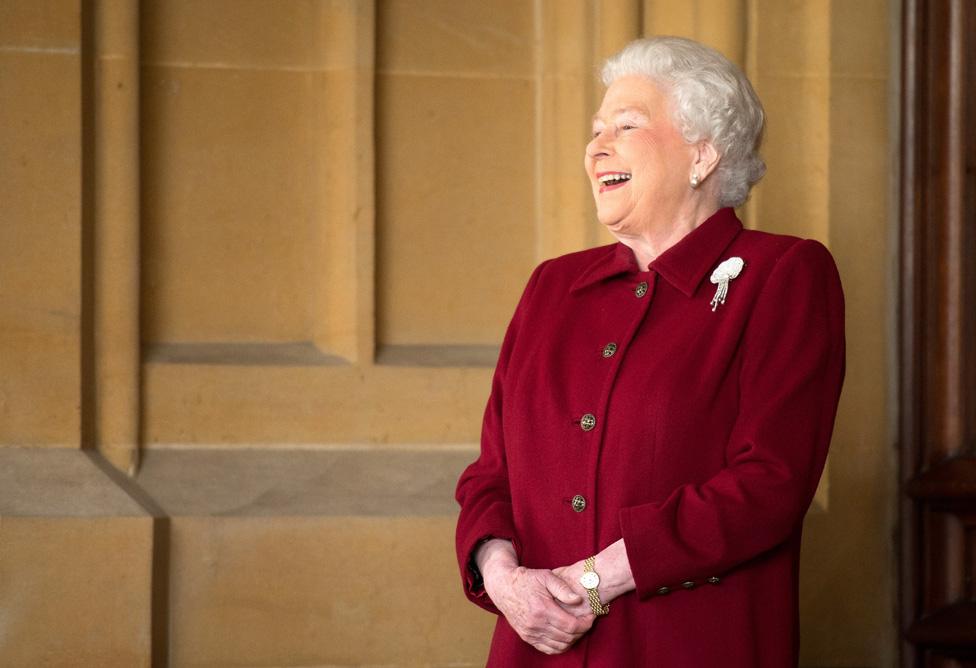
The Queen is celebrating her 90th birthday this week yet there are few signs that she is slowing down. Last year alone she carried out 306 engagements in the UK and 35 abroad. What does the Queen's good health tell us about longevity?
Good genes
The Queen can thank her mother, who lived to 101, for passing on good genes. According to Prof Sarah Harper, from the Oxford Institute of Population Ageing, just over half your chance of living a long life is dictated by luck of birth.
"If you have parents and grandparents who made it into their eighties and nineties there is a chance you have inherited good genes. You are more likely to have a strong immune system and are less likely to develop chronic diseases such as cancer and cardiovascular problems.
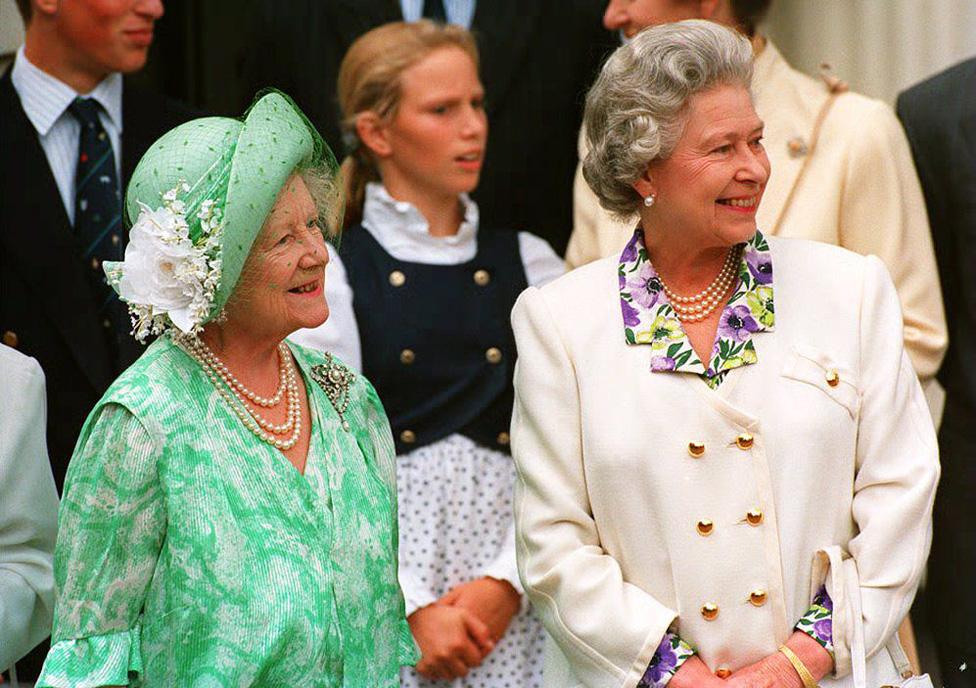
"Genes also influence if we have obsessive behaviours, such as taking more risks or to eat or drink too much."
The Queen's father, George VI, died at 57 while her paternal grandfather, George V, died at 70. However, both died from smoking-related diseases. Her paternal grandmother lived to 85, while her maternal grandfather and grandmother lived to 89 and 75 respectively.
Avoided bad habits
Half of long-term smokers die prematurely, losing an average 10 years of life. Smoking causes heart disease, lung cancer and chronic bronchitis, among others. However, the Queen was never tempted to take up the habit, according to her former press secretary, Dickie Arbiter.
"People smoked a lot more when the Queen was younger," he says.
"Both her father and her sister smoked, but it never attracted her. It was something that just didn't appeal."
According to Vanity Fair, external, Prince Philip gave up cigarettes on his wedding day, because Elizabeth's father's addiction to cigarettes had caused her anguish.
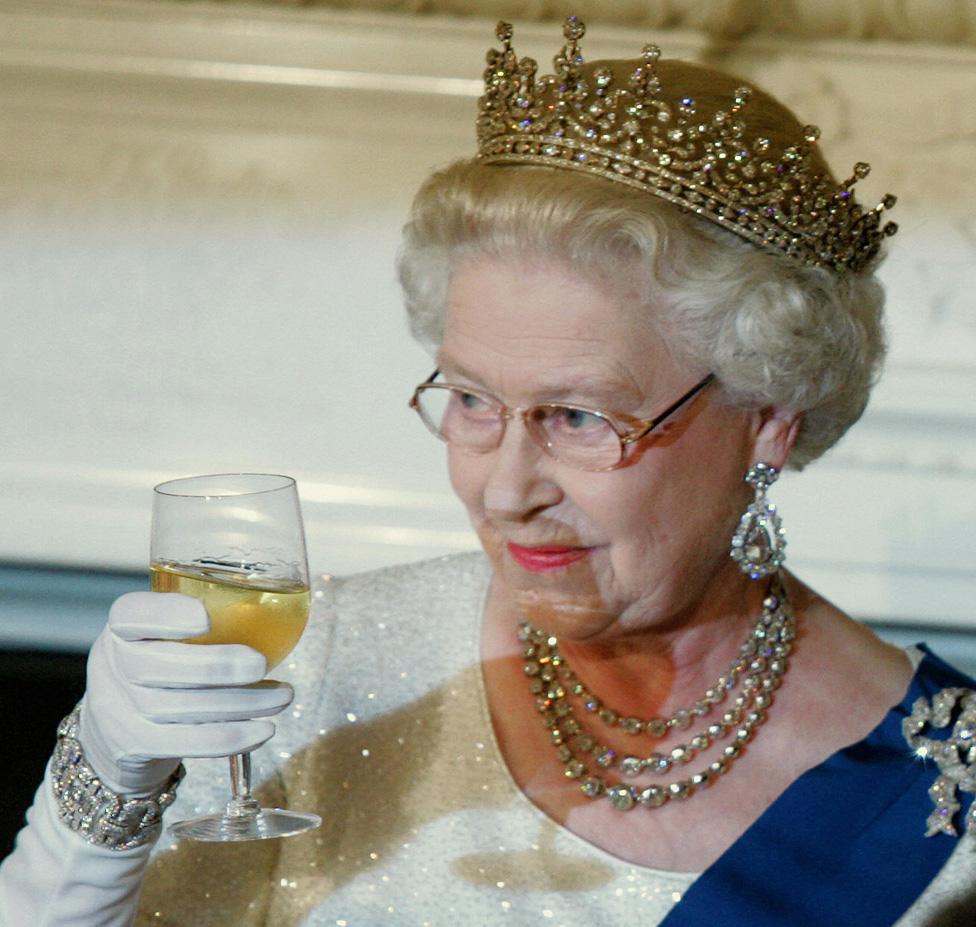
The Queen apparently also has a healthy approach to alcohol. "She doesn't drink a lot," says Arbiter. "If she's having a drink she will usually just have one. Two is very rare." This would be well within NHS guidelines.
The NHS advises , externalthat men and women should not consume more than 14 units of alcohol a week and this should be spread across three days or more. A standard glass of wine (175ml, 12%) is about two units. Drinking more than this raises the risk of heart and liver disease as well as mouth, throat and breast cancer.

More coverage

Sensible eating
Darren McGrady, who was the Queen's personal chef, told People magazine, external last year that she keeps a close eye on her figure. He said when she isn't entertaining she sticks to simple meals like grilled chicken with salad.
"She's very disciplined. No starch is the rule. No potatoes, rice or pasta for dinner," he said.
Neither the Queen nor Prince Philip has a reputation for overindulging at mealtimes, according to royal historian Kate Williams. "It's important as they have to attend a lot of formal dinners and banquets."
Obesity, which is caused by a poor diet and lack of exercise, reduces your life expectancy between three and 10 years, external. It's a major risk factor for heart disease and strokes as well as diabetes and some cancers.
Overweight and obese children are more likely to become obese adults, but this wasn't an issue for the young princess, according to Williams.
"She had a very healthy childhood. She and Margaret had a governess and had lessons in the mornings but then dancing, playing and horse riding in the afternoon.
"During the war they lived on rations liked everyone else. Her Majesty still prefers to eat simple food afterwards, like meat with veg, not processed foods."
Marriage
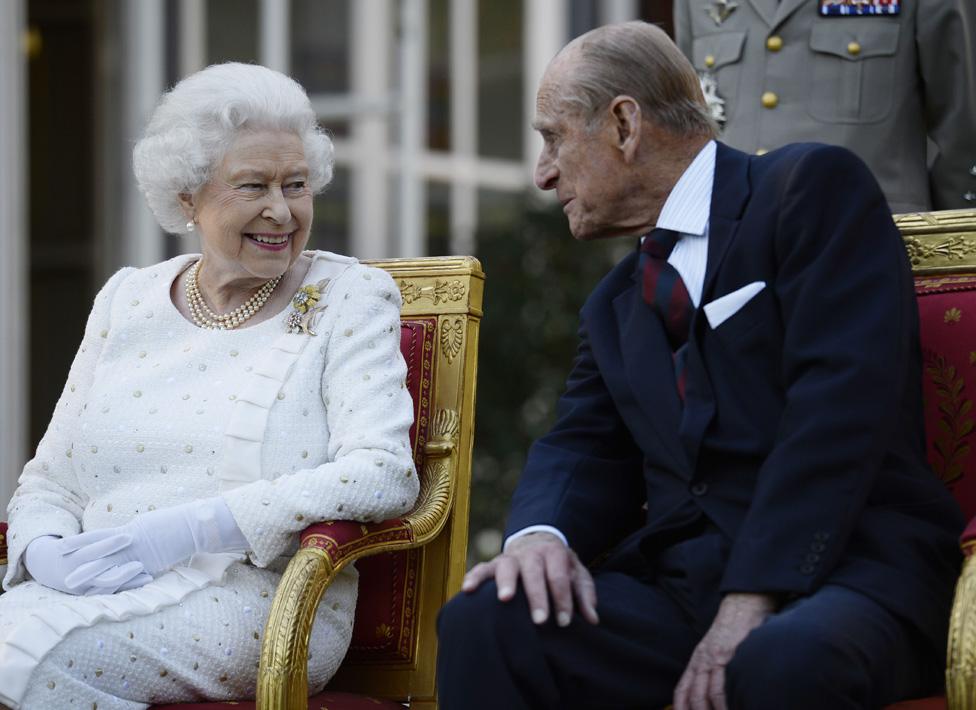
Marriage has been found to have a protective effect on health, as long as it's a happy one. Researchers at NYU Langone Medical Center, external found a successful marriage reduced a spouse's risk of cardiovascular disease by 5% compared with a single person, but a strained marriage increased it.
The Queen and Prince Philip, who is five years older, have been married for 68 years. In 2012 Elizabeth paid tribute to her husband during her Diamond Jubilee celebrations calling him her "constant strength and guide".
"She has a strong marriage," says Arbiter. "There has only been one man in her life and that's Philip."

Other long-lived British monarchs
Queen Victoria: 81 years, 7 months, 29 days (1819-1901)
King George III: 81 years, 7 months, 24 days (1738-1820)
King Edward VIII: 77 years, 11 months, 3 days (1894-1972)
King George II: 76 years, 11 months, 25 days (1683-1760)
King William IV: 71 years, 9 months, 28 days (1765-1837)

Stayed physically active
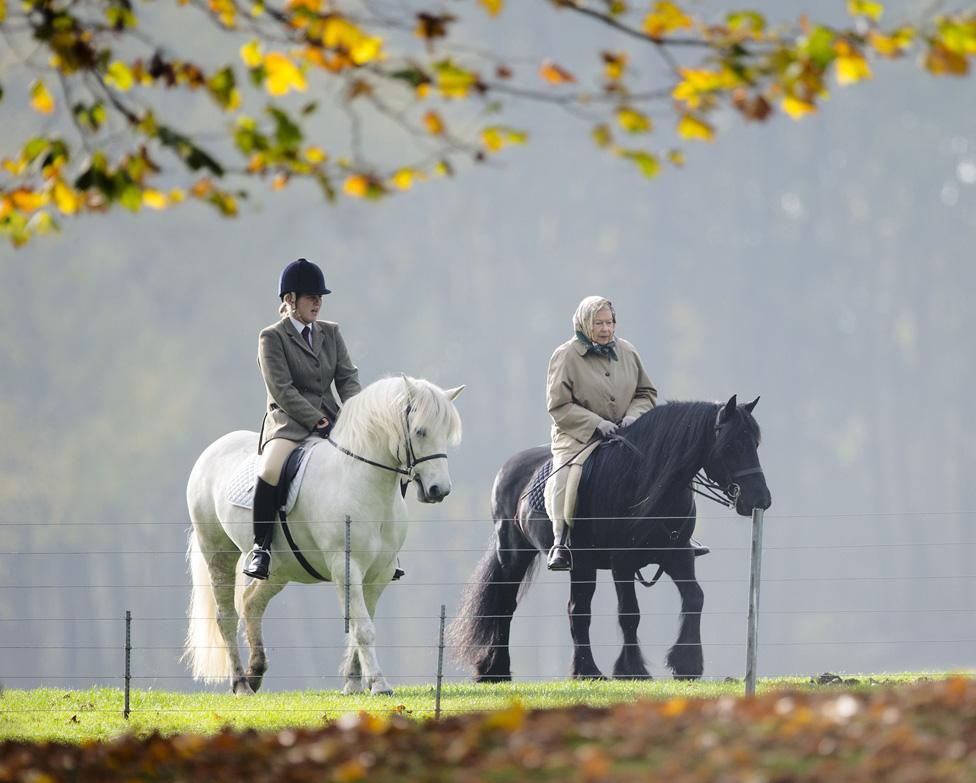
The Queen exercises every day to help her bear the strain of her physically demanding job.
"She rides once or twice a week when she's at Windsor and walks during the day. If she doesn't have time to walk the dogs in the morning she will walk them in the afternoon," Arbiter says.
"Unlike many modern workers she doesn't sit at a desk all day. During an investiture [a ceremony where she bestows honours such as OBEs] she is standing for up to 90 minutes."
Harper says evidence suggests the best exercise is constant activity, rather than spending half an hour doing the same thing like running on a treadmill.
After a long day the Queen is careful to get a good night's rest. "She sleeps around seven hours a night and is woken around 7.30am in the morning," Arbiter says.
A study from the University of Warwick, external found those who slept less than six hours a night or more than nine hours had an increased chance of dying prematurely compared with those who got between six to eight hours a night.
Coped with stress
Stress can take years off a person's life. A study published in the British Medical Journal, external found even low-level stress increased the risk of heart attacks and strokes by 20%. So how has the Queen coped with the responsibility as head of the Royal Family, life in the public eye and a busy work schedule?
"I don't think the Queen does stress," Arbiter says. "She's been doing this job for so long she is conditioned against it. She can get angry if something doesn't go right, but as it's often out of her control there is no point becoming stressed about it."
Harper points to a Whitehall study, external that found the higher a person's status in the civil service, the healthier and longer lived they were. It found if you are more in control of your life, you have a better chance of living longer.
"The Queen is an interesting case as there are some aspects of her life that aren't in her control," says Harper. "However, she does apply control in all the areas where she is free to make decisions. She chose to marry Prince Philip despite some disapproval. It's known that she makes all the daily decisions in her household, such as checking the daily menus."
Kept mentally alert
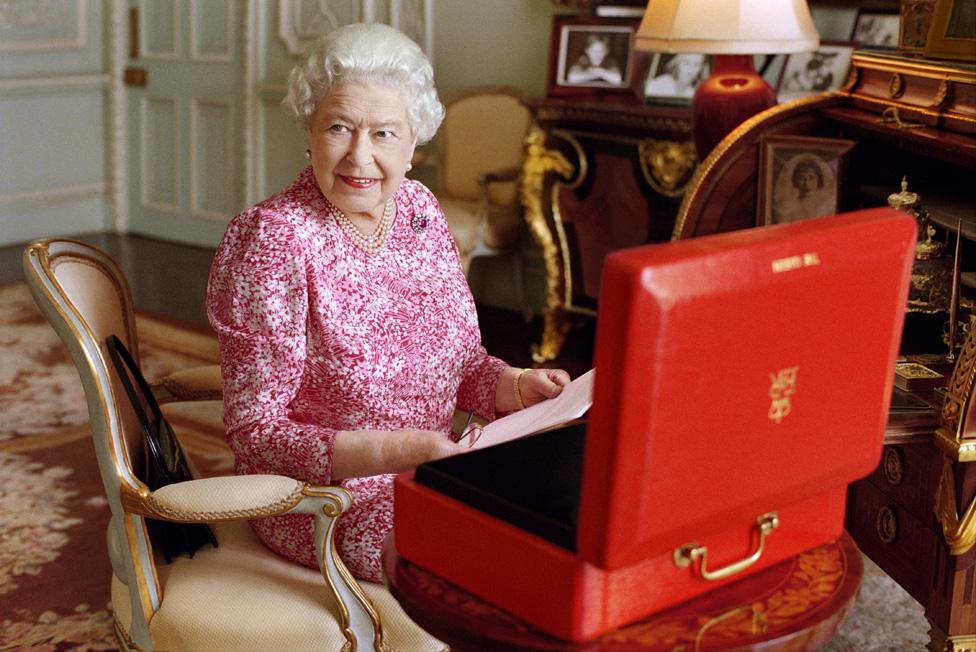
As head of state in the UK as well as 15 countries in the Commonwealth, the Queen has much to occupy her mind.
"She reads a lot, she gets government papers from countries all over the world," says Arbiter. "She gets her red box of government papers every day apart from Christmas Day. She reads and answers correspondence, she prepares for audiences and talks to all sorts of different people. She has receptions that range from health to the arts and politics and spends the first hour of garden parties meeting and talking to people. Her schedule is pretty relentless."
A study from the Rush Medical Centre in Chicago, external found mental stimulation was linked to a slower rate of cognitive decline, although more research is needed.
Faith and charity
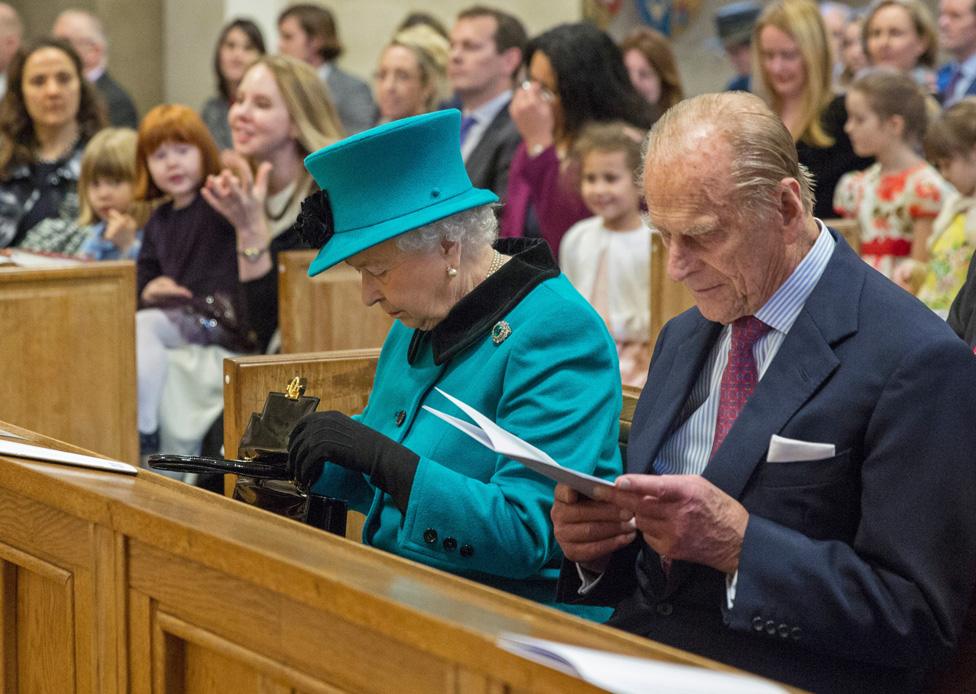
The Queen is titled the Defender of the Faith in the UK and is a committed Christian. She has written a foreword to the book The Servant Queen and the King She Serves, which has been published to celebrate her 90th birthday. She wrote: "I have been - and remain - very grateful to you for your prayers and to God for his steadfast love. I have indeed seen his faithfulness."
Religious belief has been linked to a longer life, although scientists aren't entirely sure what the connection is. "It could be that religious faith, especially in the West, comes with a community and support network. On the other hand faith may make you feel more positive about life and death. Studies have found that optimists live longer than pessimists," says Harper.
Helping others can also boost longevity. A review in BioMed Central, external found those who did volunteer work could reduce their early mortality rate by 22%. They also benefited from reduced levels of depression.
"Caring for others, such as doing charity work, can make you feel valued and positive about yourself. It's also important to have a purpose in life. We work not just to earn money but to contribute to society," Harper says.
The Queen is patron of more than 600 charities and organisations, including Great Ormond Street Hospital, Cancer Research UK and the RSPCA. Research from the Charities Aid Foundation in 2012, found that she had helped them raise £1.4bn.
Subscribe to the BBC News Magazine's email newsletter to get articles sent to your inbox.